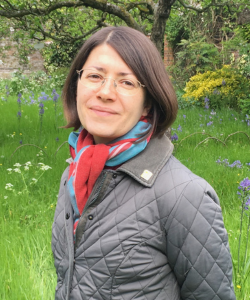Blog: A moment of opportunity
15 July 2024
Corinne Pluchino, ACRE’s new chief executive, reflects on her first fifty days in post
One hundred days into a new role is often seen as a good moment for reflection, to consider new connections, fresh insights and, occasionally, unexpected surprises. In my case, however, so much has already happened since I joined ACRE in May – not least the election of a new government – that fifty days in seems like a good moment to take stock. Interestingly, many of the things that have made the most impression on me are directly relevant to how rural communities are perceived and supported by policy makers.
Firstly, I have been reminded of just how many different issues and organisations shape rural life. I have particularly enjoyed getting to know my new colleagues across the ACRE Network, consisting of 38 organisations delivering vital support to rural communities across England. Their expertise and intimate local knowledge offers unique insight into what is really going on at a community level.
I am also so pleased to have been able to re-establish old connections, as well as making new ones, for example at Future Countryside 2024 and the National Landscapes Annual Conference. These events have also highlighted the complex relationship between economic, social and cultural trends, urgent environmental issues and different areas of public policy. We all need to think more holistically if we are going to achieve lasting change.
This links to my second point – rural communities are not just about farming. Agriculture is a vital part of the countryside, not least because of its relationship with the landscape and the natural world, which are often the first things people imagine when they think about the countryside. But the vast majority of people living in rural areas do not work in farming or food production. Public policy and the debates that shape it need to reflect this.
Thirdly, rural communities are not all the same. They are not homogenous places with consistent needs and views. They are the product of generations of lived experience and local circumstances. It is certainly true that rural communities share some common characteristics and concerns – of which more below – but it’s simplistic to assume they are all the same. Nearly 10 million people live in rural England. We need to understand the key trends but also allow for difference and nuance. Which is why creating mechanisms for local voices to be heard in decision making is so important.
Finally, our rural areas are full of contrasts. They can be places of outstanding natural beauty and unique cultural heritage. They can also be areas of severe deprivation and hardship. Rural homelessness has increased by 25% in three years. Rural homes are less affordable to buy for the bottom 25% of earners than in urban areas. The rural fuel poverty gap is double the national average and public transport services are often infrequent and expensive.
At the same time many rural communities are resilient, collaborative and innovative. So we must both address the longstanding inequalities they face, and support them to make sure they are able to shape their future, whether that be the transition to net zero, flood resilience and nature’s recovery, or securing affordable homes that meet local needs.
The Labour Party manifesto commits to a future “where wealth is created in every community” in which local areas will gain new powers to develop key services. There is immense opportunity to ensure this applies as much to rural as to urban and suburban areas. The next fifty days are just the beginning.

I have particularly enjoyed getting to know my new colleagues across the ACRE Network, consisting of 38 organisations delivering vital support to rural communities across England. Their expertise and intimate local knowledge offers unique insight into what is really going on at a community level.
Corinne Pluchino, ACRE’s Chief Executive


